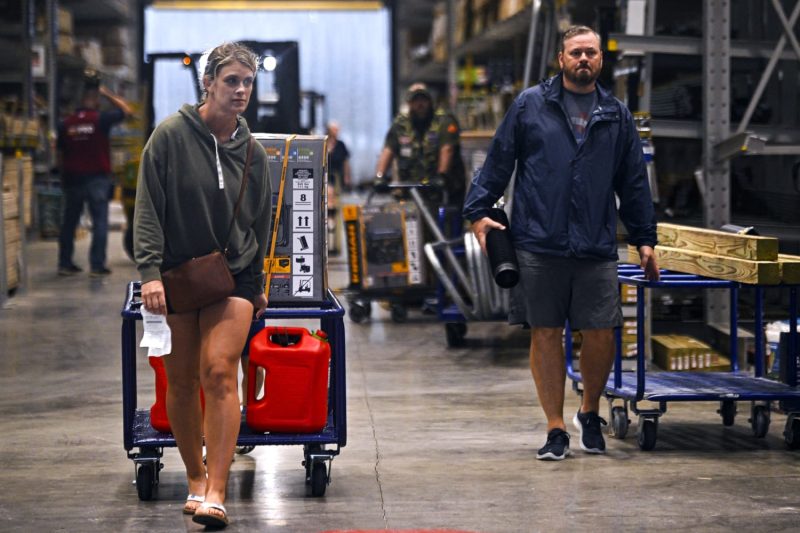
Beware: Hurricane Milton Brings Potential Fraud and Price Gouging Threats, DOJ and FTC Caution
In the wake of natural disasters, consumers often find themselves vulnerable to scams and price gouging that can take advantage of the chaos and uncertainty that follows. The Department of Justice (DOJ) and the Federal Trade Commission (FTC) have issued warnings to alert consumers of the heightened risks of fraud and price gouging in the aftermath of Hurricane Milton, urging people to remain vigilant and informed.
Price gouging, the practice of charging excessive prices for goods and services during a state of emergency, is a common concern in the aftermath of disasters. Retailers and service providers may seek to exploit the increased demand for essential items by unfairly inflating prices, taking advantage of consumers’ urgent need for supplies. This unethical practice not only harms individuals already facing hardship but also undermines the community’s ability to recover and rebuild effectively.
The DOJ and FTC are urging consumers to be aware of price gouging indicators, such as significant price increases compared to pre-disaster levels, prices that seem too good to be true, or sudden changes in pricing policies by businesses. By remaining informed about typical pricing for essential goods and services, consumers can more easily identify and report instances of price gouging to the authorities for investigation.
Fraud is another major concern following natural disasters, as scammers often take advantage of vulnerable populations seeking assistance and services during a crisis. Common fraudulent schemes include fake disaster relief organizations, fraudulent charitable appeals, home repair scams, and identity theft through phishing emails or phone calls. These scams not only exploit individuals financially but can also compromise their personal information and security.
To protect themselves from fraud, consumers are advised to be cautious when providing personal or financial information to unfamiliar entities, verify the legitimacy of charities before making donations, and be wary of unsolicited offers or requests for money. It is essential to research and confirm the credentials of any organization claiming to provide disaster relief assistance and to report suspicious activities to the relevant authorities promptly.
In addition to monitoring for price gouging and fraud, consumers are encouraged to review their insurance policies, secure important documents, and create emergency supply kits to prepare for future disasters. By taking proactive steps to safeguard themselves and their families, individuals can better navigate the challenges of recovery after a natural disaster and reduce their vulnerability to exploitation by malicious actors.
Ultimately, the warnings issued by the DOJ and FTC serve as important reminders for consumers to remain vigilant and informed in the aftermath of Hurricane Milton and other disasters. By staying educated about potential risks, being cautious in their transactions, and reporting any suspicious activities, individuals can help protect themselves and their communities from fraud and price gouging during times of crisis.
